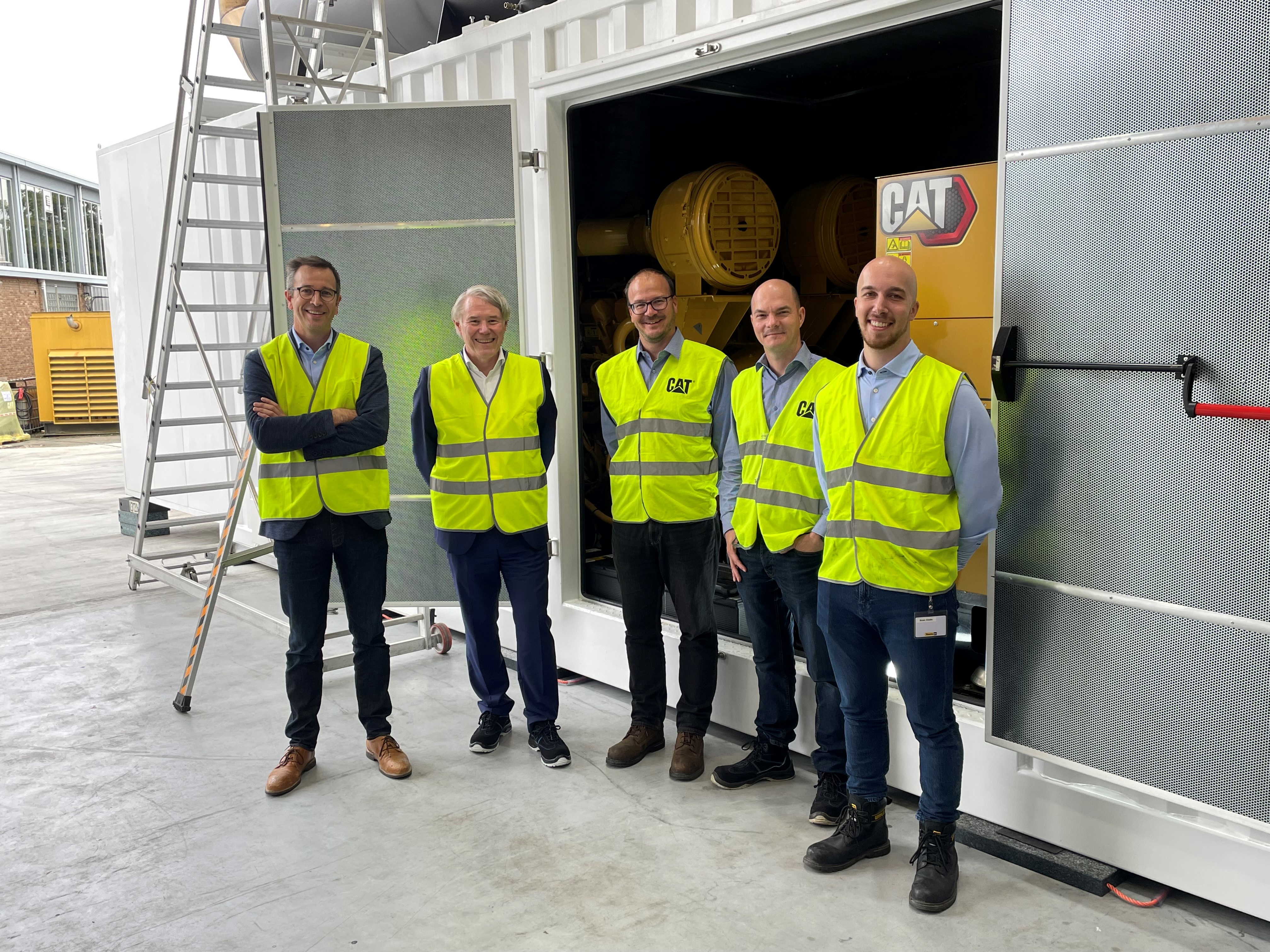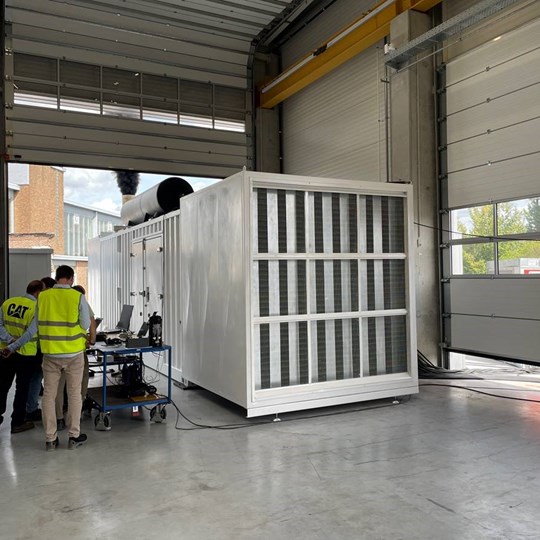Aalst/Antwerp/Diegem/Gembloux/Huizingen, 25 October 2022 – The data centers specialist LCL is the first in its sector in Belgium to use biofuels, and specifically HVO100, for its backup generators. This fuel will initially be used in only one of the data centers. LCL has already invested in six new 2.25 MVA generators, which will operate on HVO100 for LCL Brussels-West in Aalst. In the next step, LCL plans to have all the generators at its five data centers operating on HVO100.
This investment is fully in line with the Science Based Targets initiative (SBTi), which LCL signed in November 2021 to reduce greenhouse gas emissions in its data centers and to limit global warming to 1.5°C. HVO100 is a sustainable alternative to regular diesel, which produces 90% less CO2 emissions. So by using this biofuel for these backup generators at its data center in Aalst, LCL is taking a major step forward to achieve its SBTi targets. This will notably lead to a reduction of 72 tonnes of CO2 or 4.6% under Scope 1.

LCL Data Centers made a deliberate choice to switch to generators operating on biofuel, in this case HVO100, for all its new generators. HVO100 is produced from 100% renewable raw materials that are not used for food purposes: vegetable oils (including used frying fats), animal oils, wood waste and pulp. In the technical process used, they are processed with hydrogen. LCL Brussels-West, the data center in Aalst, will be the first to switch to this technology. The center currently has eight backup generators, including six new 2.25 MVA generators that use HVO100 and two others (which are older) of 1 megawatt.
The backup generators are only used during monthly tests, when the electricity is cut or during real power cuts. In tests like these, the LCL technicians verify that all backup systems continue to operate efficiently, correctly and quickly.
“Using HVO100 enables a 90% reduction of CO2 equivalent emissions from the generators. In total, this represents a reduction of 72 tonnes of CO2. Put simply, HV0100 is wholly renewable,” says Laurens van Reijen, Managing Director of LCL Data Centers.
LCL Data Centers first decided to extend the existing infrastructure of its data center in Aalst with new generators that operate on HVO100. In the near future, the company also wants to convert the current diesel generators to run on this biofuel.
“In so doing, LCL will highlight its leading role in the data centers sector. We are striving hard to be an example for the other Belgian and European players in our sector. We also hope to send a signal to our existing and potential suppliers to make their own organisations more sustainable. Only by working together can we make a difference,” adds Laurens van Reijen.
For its sustainability policy, LCL purposely chose to work with a company that shares the same values. Because ENERIA, a specialist in renewable energy supply and emergency power installations in Belgium, also works with SBTi for its own sustainability targets.
Tim Bisson, Director of Eneria Belux, explains: “We were delighted to receive the request from LCL Data Centers to make its backup generators operate on HVO100. The CATERPILLAR generators have been fully tested on our premises, in line with the very specific requirements of LCL. We tested their operation with diesel, HVO100 and a blend of the two fuels. Our conclusion was that, whatever fuel is used, the performances – in other words the power, reactivity and emissions – of the generators fully remain the same. With HVO100, the generators consume around 5% more fuel, due to the small difference in energy density between HVO100 and regular diesel. We are pleased we can help to reduce LCL’s CO2 emissions. It means we too can help, albeit in a small way, to make businesses more sustainable.”
